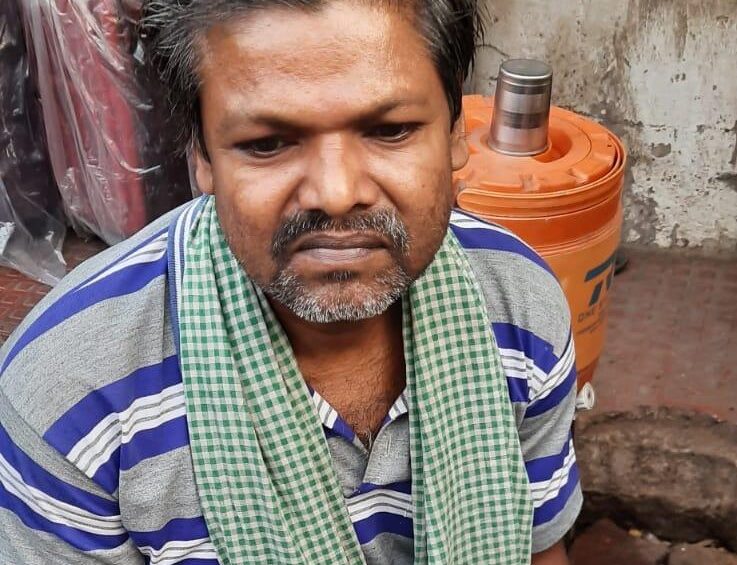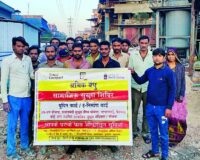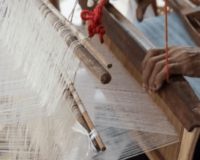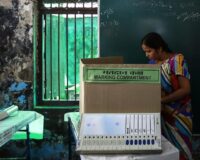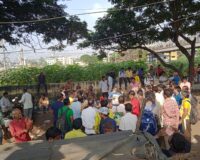
5th May, 2022
Mr. Prasant Kumar Pania Swain, a migrant worker from the Ganjam district of Odisha moved to Surat to work in a power loom unit. He is a single male migrant living in a mess. His family lives in the village.
He was working as a TFO worker in A-One Textiles situated at Fulwadi, Ved Road, Surat. He was working in the day shift. During the course of his work, his index finger suddenly got stuck in the machine and was injured very badly.
He called his TFO Master for emergency help; the master immediately responded and took him to the local doctor for treatment. The worker was referred to Kamalaba Multispecialty Hospital because the injury was very deep. His index finger was cut from the middle. His employer bore the expenses associated with treatment, but didn’t provide him any unemployment allowance or compensation for the bodily loss suffered. In fact, he was fired from his job abruptly.
He felt very discouraged and wasn’t able to access aid from anyone until Mr. Sukant Mandal and Mr. Prahlad Swain, members of the Pravasi Shramik Suraksha Manch union ran into him at a tea stall. They asked him for further details about this incident and assured him they would help him get justice. They talked with our colleague Mr. Sharad Zagade about the legal procedure for claiming compensation. They visited the loom in the absence of the employer and retrieved vital information about the full name of the employer, the official address of this unit, the number of workers working in this unit, contact number of the owner, etc.
We registered this dispute in the Surat centre and persuaded the employer to undergo mediation. If the employer refused to cooperate, we would be compelled to adopt litigation. We held a telephonic discussion with the employer, who promised to speak to his elder brother about compensation. We hit an unexpected roadblock. When the worker’s family discovered that he had opted to file a case against the employer, they began pressuring him to withdraw the case, even threatened to starve themselves. His wife threatened to hang herself, fearing reprisal by the employer if the worker chose to not withdraw his case.
This put the worker under tremendous mental stress. He approached the Surat centre in tears, determined to withdraw the case and let ‘bygones be bygones’. Our colleague Mr. Siba Malik called the worker’s wife and counselled her telephonically in Odia, reassuring her that the union and the centre would support the worker’s legal cause.
On the evening of 30th March, the TFO master called up the worker out of the blue and invited him to come to the loom unit. There, the employer explained to him that pursuing a legal case would fetch him nothing, as the union will grab the money and not give the worker any. He offered the worker Rs. 5,000 to close the case and desist from any further attempts at recovering compensation. He also threatened to file a police complaint against the worker if he contacted the centre again.
On March 31st, the worker came to the office and told us that the employer and TFO master settled the matter by paying him Rs 5000 and made him sign some paper, while also threatening to file a police complaint against him. When we contacted the employer, he promptly met us in the Aajeevika Bureau office and attempted to smooth things over. But our colleague Sharad outlined the legal violations committed by the employer in not complying with the Employees Compensation Act and by threatening to file a false complaint against the worker. The employer offered to pay a month’s salary as the final settlement, but Sharad demanded the worker’s further treatment and unemployment allowances. Owing to his financial capacity, the employer refused, and after much debate, reached a mutual understanding that he would pay the worker Rs. 30,000. The employer recorded this understanding in a notarised document signed by an advocate.
The picture captures the final settlement of compensation between the employer and the injured worker.
This case study was written by Zagade Sharad with inputs from Sanjay Patel and Siba Malik from Aajeevika Bureau.

